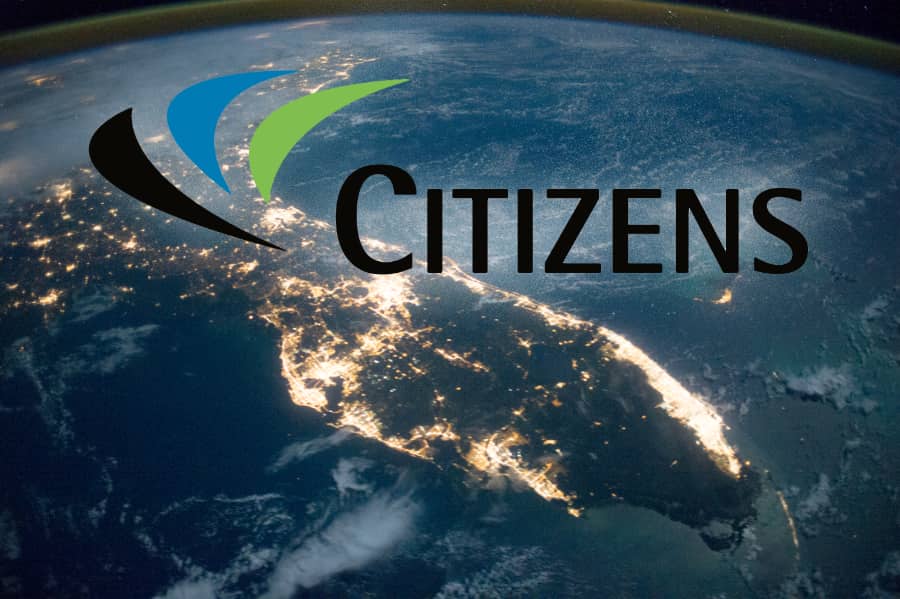Florida Citizens “will always be able to pay claims” – CEO Cerio

After Florida Governor Ron DeSantis claimed on television that the states Citizens Property Insurance Corporation “is not solvent”, the CEO of the insurer of last resort has responded saying that Florida Citizens financial structure means it “will always be able to pay claims”.
The number of policies in-force at Florida Citizens has dipped to around 1.17 million at the end of February, down from a high of just over 1.4 million last year.
That decline is thanks to depopulation activity, as private insurers take out some of its risk, but the state wind insurer of last resort has not seen its exposure decline especially, given the inflationary effects of the last year or so.
The financial adequacy of the Florida Citizens business model has come in for questioning of late, with US Senate Budget Committee Chairman Sheldon Whitehouse questioning the ability of Citizens to pay its claims without taxpayer support.
Which has led to a back and forth in letters between the Senator and Citizens CEO Tim Cerio, who has responded again to say that he believes Citizens has the ability to “always pay claims.”
“We believe we fully addressed the concerns raised in Chairman Whitehouse’s prior letter by pointing out in great detail the mechanisms under Florida law that ensure Citizens will always be able to pay the claims of its insureds. We also highlighted that neither Citizens, its predecessor entities, nor the State of Florida, have ever sought a federal bailout to cover hurricane losses. We also expressed concern that the Chairman’s letter could cause misplaced panic in a Florida insurance market well on its way to recovery,” Cerio explained.
Adding, “We will certainly meet with Budget Committee staff to provide information and documentation about Citizens’ structure, function, and claims paying ability. It is important to note that much of the information sought by the Budget Committee is already available online and is regularly discussed during our public board meetings.”
Cerio went on to explain, “It is also important to reiterate to Floridians in general, and Citizens policyholders in particular, that Citizens’ financial structure ensures that it will always be able to pay claims.”
He further said that, “we can think of no scenario in which Citizens would be required to seek federal financial assistance.”
Cerio said that should Citizens exhaust its surplus and extensive reinsurance coverage after a major hurricane or series of storms, it would be required under the Florida statutes to “levy surcharges on its policyholders and assessments on non-Citizens policyholders to eliminate any deficit.”
Cerio further said, “This is not mere speculation. Following the 2004-2005 hurricane seasons, Citizens successfully used this assessment mechanism to eliminate a deficit without federal assistance and with minimal impact on Florida insurance consumers.”
The Florida Citizens CEO then made a commitment to secure the necessary reinsurance and risk transfer for the coming hurricane season.
He stated that, “Going into the 2024 hurricane season, Citizens will have the reserves and reinsurance coverage to handle a 1-in-100-year storm without having to levy assessments on non-Citizens policyholders. To put that into context, Hurricane Andrew was a 1-in-43-year event while Hurricane Ivan was a 1-in-20 to 1-in-25-year hurricane.”
As we reported back in December 2023, Florida Citizens looks set to purchase even more reinsurance and catastrophe bond backed risk transfer in 2024, with its new layer structure, following the merging of its accounts, suggesting as much as $5.5 billion could be purchased this year.
Florida Citizens is expected to come back to market with catastrophe bonds in the coming month or so, with a large issuance of perhaps more than $1 billion anticipated, should the cat bond investor community be receptive.
At the same time, Citizens staff are already engaged with reinsurance and ILS markets to ensure it can secure the necessary reinsurance cover it needs from traditional and collateralized sources.
As we also reported back last December, Citizens will only have a $500 million Lightning Re Ltd. (Series 2023-1) industry loss trigger catastrophe bond left in-force, given it’s long-standing plans for an early redemption and other scheduled maturities of cat bonds, as it needs to buy afresh for the new combined tower reinsurance approach.
The cat bond and reinsurance market is expected to be receptive to Citizens needs, so it’s expected the insurer won’t be challenged to secure the necessary reinsurance it needs.
However, Citizens CEO Cerio did highlight once again the issue over whether the rates it is charging are sound in the first place.
Saying, “Although Citizens’ assessment authority means that it will always be able to pay claims, Citizens’ rates are currently actuarily unsound because of the “glide path.”
“It is critical that Citizens be able to charge actuarially sound rates to help minimize the risk of such assessments on the people of Florida.”
Meanwhile, Senator Whitehouse said Citizens has not addressed the concerns over its financial stability and claimed Citizens failed to cooperate with his investigation.
With reinsurance to cover a 1-in-100 year storm and the ability to levy assessments should that and whatever surplus is available be exhausted, it seems Citizens financial shape is no worse than it has been in the past and the reinsurance and cat bond market remains a critical source of risk financing.
As ever, risk commensurate pricing for inward policies remains key, as to does how that could also result in a much faster shift of policies back to the private marketplace, given private insurers would be more competitive then.
That could help to more rapidly reduce the exposure base of Citizens, so reducing the potential financial hit from major storms.
That, alongside measures to further increase the health of the Florida market seem the only reasonable way forwards, if the over-exposure of Citizens is seen as the problem.
Time would be well-spent on identifying how global insurance and reinsurance markets could better help, through the creation of capital structures to support more of Florida’s risk, if indeed reducing the chance of assessments and potential taxpayer levies is the real goal of lawmakers.






